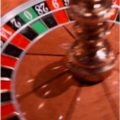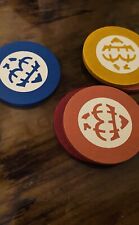
The current issue of the Journal of Gambling Studiescarries a study by psychologists from Drake University that identifies the two critical mistakes that gamblers habitually make. The researchers, W. Scott Wood and Maria Clapham, said the results appear to hold true for both occasional gamblers and problem gamblers.
Illusions of control or skill are the two problems, explained the researchers. “Gamblers often display what psychologists call ‘cognitive errors,'” said Wood. “The first belief is an illusion of control. For example, they may believe that if they watch slots closely and see one lose over and over then the machine is ‘due’ for a payout. Or they may think that they have a particular skill in playing a particular casino game or another. Such beliefs are incorrect. A slot machine is programmed to pay out randomly. It has nothing to do with [how] a gambler holds the handle or whether it paid out five times before the gambler sat down or lost 50 times in a row.”
“The second cognitive error is superstition,” Wood said. “This is a belief that has do with how lucky you are.
Their research also suggested that the more someone gambles, the more likely they are to display these cognitive errors. And it seems that casinos are happy to take advantage of such thinking. Wood cited the use of popular culture motifs on slot machines as an example. A machine based around the Wheel of Fortune television show may influence gamblers into thinking that their familiarity with the program will favor their success playing the game.
The researchers stress they are neither pro- nor anti-gambling, but believe the more the public knows about gambling, the better decisions they can make. “The odds always favor the house. The more you play, the more likely you are to lose – and there is no skill, insight, or lucky charm that can change that. People ought to know the real facts behind what they’re getting into,” concluded Wood.


















Comments are closed.